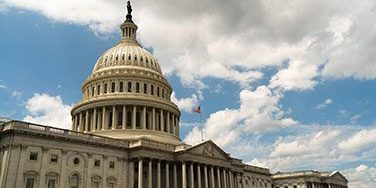Federal Education Policy
Federal Education Policy:
Impact on Charter School Oversight
Charter schools are public schools. As public schools, they are governed by federal and state laws. Charter schools are commonly exempted from many state laws—autonomy and flexibility are hallmarks of the charter school model—but federal education policy law cannot be waived.
For an authorizer or other oversight entity, providing oversight of federal education policies is about being able to verify that a charter school is fulfilling all federal requirements. As discussed in How Federal Education Policy Influences Education, these are broadly linked to: doing what is necessary to receive federal education and charter school funding; and ensuring fairness, often by complying with federal mandates. These federal requirements are expressed in two ways: indirect requirements that trickle down through state policies; and direct requirements.
Title I
The largest pot of federal education policy funding. In order to receive funds, a state must have an approved plan that meets requirements for: state academic achievement standards, state assessments, state report cards, and required improvement efforts for identified low-performing schools. This includes setting goals for, and reporting on the performance of, different student population groups.
- Title I helps authorizers answer two key questions: how well is a school performing, and is it serving all populations of students well?
It provides annual, comparable data on a variety of performance metrics for every charter school, including data divided by student population groups. How a state designs its systems, and chooses to report on these requirements, will have a direct impact on the type and content of the standard annual performance data a public charter school authorizer can access from the state. - Fulfilling Title I requirements means:
Having an educational program that helps all students meet state standards, participating in the annual state assessment, correctly reporting that data to the state (or district), engaging in any required improvement efforts, and spending Title I funding appropriately.
Title II
Provides education and charter school funding to increase the quality of teachers, principals, and school leaders. To receive funds a state has to have an approved plan to improve the quality of these professionals which could include elements like: teacher certification requirements, teacher evaluations, alternative credential programs, teacher retention, or professional development. States have significant flexibility to design their plans.
- Fulfilling Title II requirements means:
Adhering to any state requirements (that apply to charter schools) for teacher, principal, or school leader quality and, if the charter school receives Title II funds, spending funds on appropriate activities.
Title IV
Includes competitive grant programs for states and individual LEAs. If a state receives a grant through one of these programs it may create new or modified requirements for individual schools. This varies by program.
Many states will receive an Expanding Opportunity through Quality Charter Schools Grant under Title IV Part C, formerly called the Public Charter School Program. Receipt of this grant places several additional requirements on states, authorizers, and charter schools. It will be explored in separate documents.
Titles III, VI, VII, and parts of IX
Address specific programs for special populations of students, including English learners and immigrant students, Native American and native Hawaiian, homeless youth, and certain geographic communities.
- Fulfilling requirements for these Titles will vary state to state:
But it commonly means providing specialized or additional services to eligible students.
Titles V, VIII and parts of IX
Mainly affect state-level education policy and have little distinct impact on public charter school oversight.
Spending and Consultation
As recipients of federal education and charter school funds, public charter schools must spend federal money appropriately: in the right amount, at the correct location, and for the approved purpose. This applies to all Title education funding and any grant funding. In addition, charter school leaders are identified stakeholders that must be consulted when the state or school district puts together applications for Title I, Title II, and some Title IV funding.
- Public charter schools must provide appropriate special education services to students with disabilities that fulfill each student’s individualized educational program.
- Public charter schools must not discriminate against any student groups, including special populations like students with disabilities, English learners, and students experiencing homelessness. This applies to admissions, discipline, and the provision of educational and other services. In limited circumstances as allowed by law, charter schools may adopt admission policies that prioritize or restrict enrollment of limited categories of students (e.g., single-sex charter schools, or a lottery preference for children of military families or educationally disadvantaged students).
- Public charter schools must protect private student information.
- Public charter schools must adhere to all applicable federal health and safety requirements.



